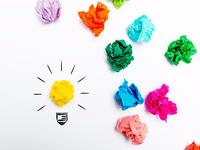Who you are is now so much more than your background, family and career. If you ask someone to tell you a bit about themselves these days, the descriptions they give inevitably include the places they’ve been, the events they’ve attended and the experiences they’ve had.
Social networks have also created new opportunities for people to define themselves. The concepts of ‘friends’ and ‘followers’ are fascinating in this respect. On Twitter many now strive to get as many followers as possible. This is not just restricted to geeks and celebrities – ordinary people can and do build powerful networks.
This cultivation of a strong personal identity and the aspiration to become brands ourselves (like The Apprentice contestant Stuart Baggs) extends to stamping our identity on the things we own. Rather than defining ourselves by our possessions, we define our possessions.
The “futurist” Magnus Lindkvist talks about this in his book Everything We Know Is Wrong. He notes that in the pre-industrial era goods were made bespoke and individual. The industrial revolution and mass production created a world where everything was made the same, but that cycle is now moving back in the other direction.
The smartphone is a great example of this personalisation trend. It’s like having a Swiss Army knife where you get to choose exactly which blades and tools are included (indeed you can now buy that very thing). This is the ultimate statement of the trend I call ‘My Self’.
So what are the implications for brands?
- Offering personalised products is an obvious response to this trend. First there were companies like Dell which allowed configuration of bespoke PCs. Others are now copying this in other markets – moonpig.com and funkypigeon.com sell personalised birthday cards (delivered) for much less than it costs to buy a similar card in the high street. Sheffield Hallam University offers students personalised prospectuses built around their own courses and requirements.
- Another step in some markets might be a more radical approach of co-production, where the consumer works with the creator to make something unique. Manufacturers could potentially set up systems so that consumers can then track the progress via webcams. This would work well for high-interest items like cars, computers and possibly even bespoke trainers. Few examples of this yet exist, but I expect many will follow.
- According to entrepreneur and author Lars Tvede, consumers are going to want to seek out products and companies with great stories. These are stories that resonate with consumers. These could be about the brand’s unique history (Jim Beam), myth (Coca-Cola and Christmas), culture (Harley Davidson), fashion icon (Giorgio Armani) or underlying philosophy (Innocent). This is particularly important for brands in the areas of health, food, luxury, finance and sport.
- Another way to work with the My Self trend is to integrate brands with popular experiences that consumers are attaching to their selves. Think Gaymers at Glastonbury, the E4 Udderbelly at comedy festivals and the Smirnoff Nightlife Exchange Project. Sponsorship has been around for years, but this new breed of sponsor is more closely involved in the experience. Marketers needs to ensure that when consumers relay the experience to their friends the brand is part of the story they tell.
- Brands that have social presence online need to consider offering personalised status symbols linked to them. Although these could be online tokens, they might be even more powerful if they were physical, e.g. bespoke branded promotional materials sent to followers.
Pete Comley is chairman of Join the Dots, formerly Virtual Surveys






1 Comment
Tom Ewing
13 years ago
Something I'd add would be the "Quantified Self" trend - an increasing range of apps, services etc aimed at allowing people to measure and take control of their lives by turning them into (more or less) objective data - a kind of self-research to go along with the self-branding.
Like Reply Report